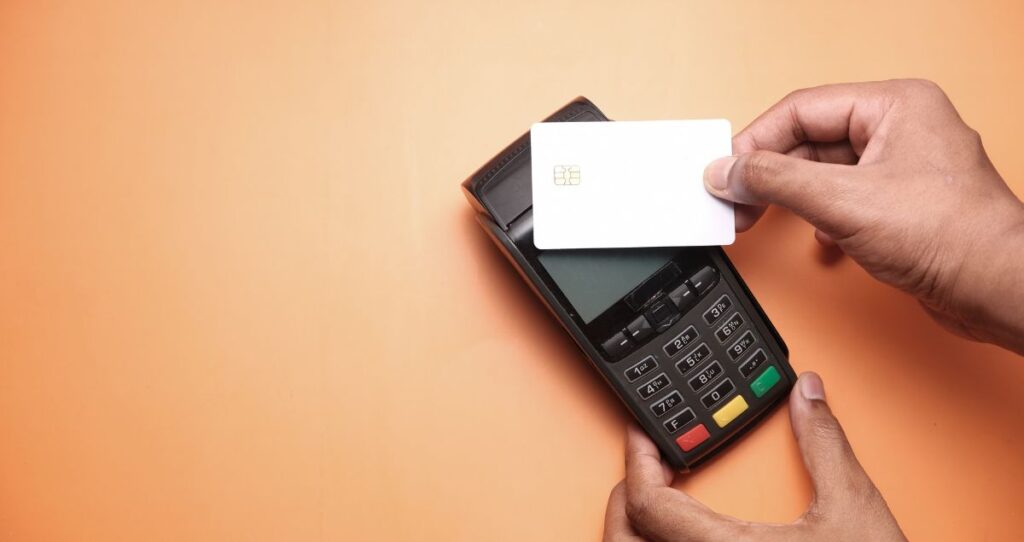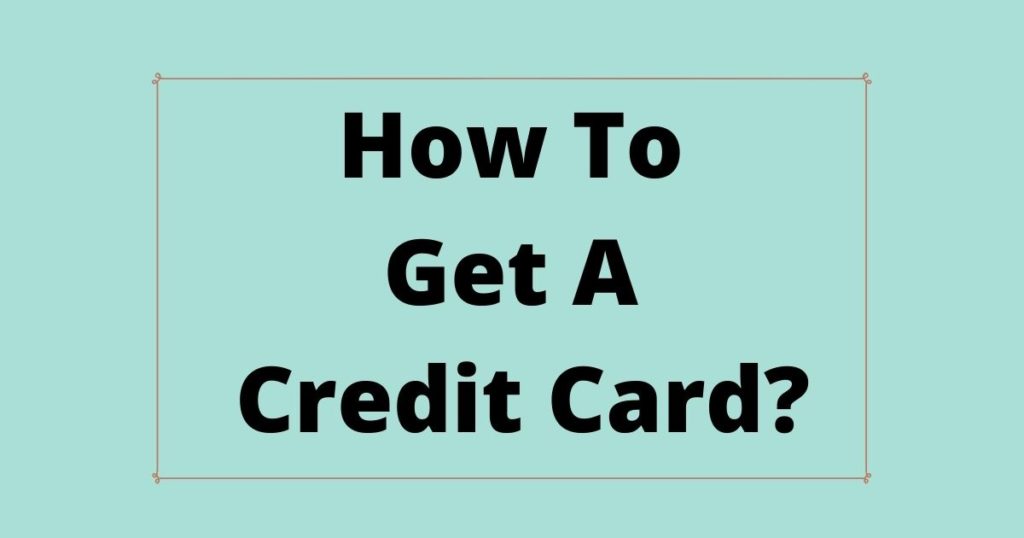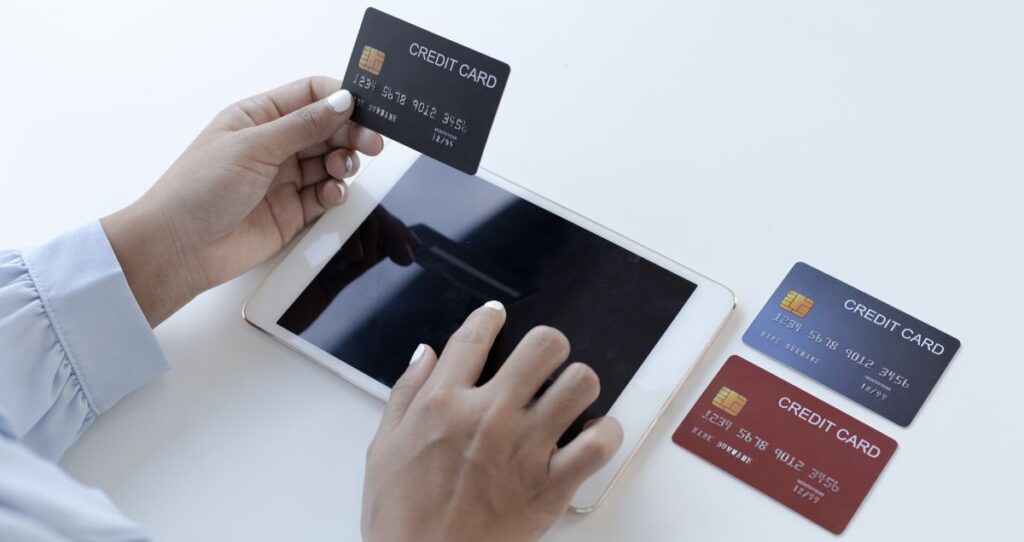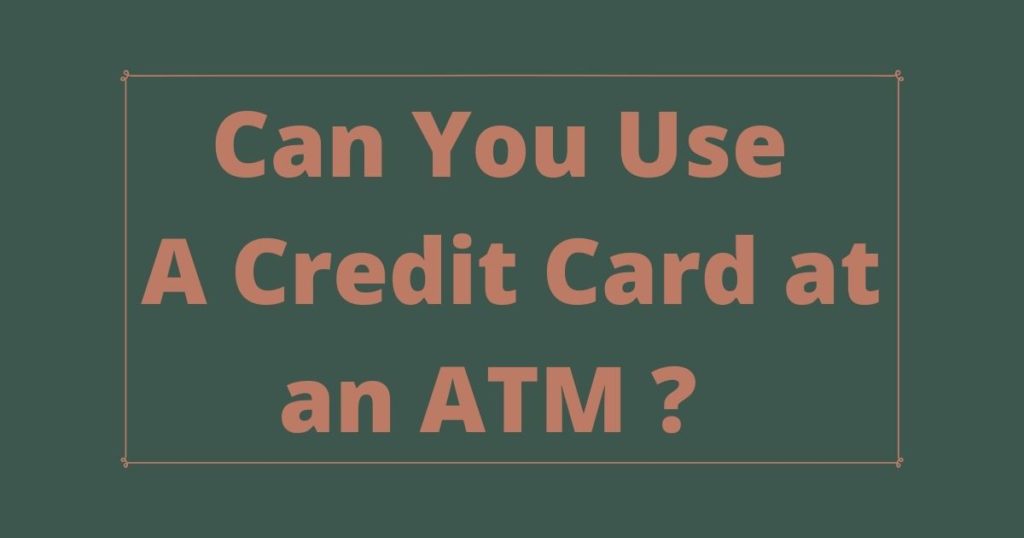If you have a credit card balance, you might be wondering if you can pay off that balance using another credit card. While it could be convenient to do so, you cannot pay a credit card with another credit card directly. The only way to use a credit card to pay off another card is to use indirect methods which involve transferring that balance to another credit card or getting a cash advance.
What is a cash advance?
The cash advance is a process of withdrawing cash from your credit card just like you would do at an ATM or cash register on a debit card. Since the cash advance is considered borrowing against your credit limit, many credit card issuers allow a cash advance of a few hundred dollars.
Cash advance comes with a higher APR that ranges from 17.99% to 29.99% and the interest starts compounding the same day you took money from your credit card. You also pay cash advance fees that range from $3 to $12 or 3% to 8% of the money you are withdrawing.
Read more: How to get cash advance from a credit card?
What is the balance transfer?
The balance transfer is a process of transferring your credit card balance to another credit card as a way to consolidate your debts for a lower interest rate. For example, if you have a credit card debt with a higher APR, you can transfer that balance to a 0% APR credit card. This financial move will automatically eliminate that high APR and make it easy to pay off your credit card debt.
With a balance transfer, you will have two options: (1) transfer the balance to an existing credit card or (2) apply for a brand new credit card. If you apply for a brand new credit card, a hard inquiry will appear on your credit reports and your credit score will drop about 5 to 12 points. However, this is the only way to get a 0% APR credit card offer unless you already have one. If you transfer your balance to an existing card, there won’t be an effect on your credit score. Additionally, the balance transfer will come with a 3% to 6% fee.
Can you pay a credit card with another credit card?
No. You cannot directly use a credit card to pay another credit card balance. For example, if you have a credit card balance due this month, you can punch in another credit card number to make a payment for that balance. Paying off the credit card with another credit card directly is like paying off a loan with another loan which requires proper channels to execute.
While you cannot car balance using another credit card, there is an indirect way to pay off a credit card with another credit card.
Use a balance transfer or a cash advance.
- Use a cash advance. The cash advance simply means taking cash out of your credit card at an ATM or a cash register. You can then use that cash to pay off your credit card balance. When you take out a cash advance, you are borrowing against your credit limit. Additionally, cash advances come with higher interest rates that start compounding the same day and fees.
- Use the balance transfer. In simple terms, a balance transfer is the process of transferring your credit card balance to another credit card. With the balance transfer, you can either transfer to a new credit card or an existing credit card at a different company. The card issuer will pay your balance and fees and the balance will be added to your new credit card which you will start paying with new terms.
Related article: What is the Balance transfer and how does it work?
How to pay a credit card with another credit card?
To pay off a credit card with another credit card, choose between a balance transfer and a cash advance. The cash advance comes with an expensive APR and high fees. Most lenders also limit the cash advance to a few hundred dollars. So, if you want to pay off a credit card with a large balance, you might find a lack in the balance transfer.
With the balance transfer, all you have to do is transfer that balance to another credit card. Typically, there are two ways to go about the balance transfer. First, apply for a new credit card and transfer your credit card balance to it. Your new card issue will pay off the balance and the transfer fees and then add the balance to your new card which you can pay off based on its new terms.
How can you pay credit card bills?
The most convenient way that is also cost-effective to pay credit card bills is to use a debit card. You can also link your bank account to your credit card account and use the same account every time you are paying your credit card balance. Additionally, you can call your bank and pay your credit card balance on the phone or write them a check if your card issuer accepts checks as a form of payment.
Does it hurt your credit score to pay a credit card with another credit card?
Generally speaking, paying off a credit card with another credit card does not affect your credit score. But, it all depends on how you do it. Here are three options and how each will impact your credit score.
- Use a cash advance to pay off a credit card. With this option, you will withdraw cash from one credit card and use that cash to pay off the other credit card. Since you did not apply for a new card, your credit score will not be affected.
- Transfer the balance to an existing credit card. Transferring your balance to an existing credit card will not affect your credit score.
- Apply for a 0% APR credit card. If you transfer your balance to a new credit card, your credit score will go down due to having a hard inquiry on your credit report. Typically, a hard inquiry lowers your credit score by 5 to 6 points on average. In some cases, your score can drop as many as 12 points.
How do I do a balance transfer from one credit card to another?
If you have decided to use a credit card to pay another credit card, here is a step-by-step process to initiate a balance transfer. The following steps are for a balance transfer with a new credit card. If you are transferring the balance to an existing card, just call your card issue and request a balance transfer. Otherwise, use the following steps for a new credit card.
- Apply for a new 0% APR credit card. The benefit of a balance transfer is that it allows you to move your balance from a higher APR card to a lower APR credit card. The best cards for balance transfers are always 0% APR cards as you pay no interest on your balance for a while.
- Receive the new credit card. It usually takes 2 weeks to get your credit card in the mail.
- Initiate the balance transfer. After getting the card, you will need to initiate the balance transfer. To complete this step, you can either call your new card issuer or request the transfer online. Be prepared to provide information related to your credit card such as the balance you want to transfer, your card issuer, your account information, etc. After transferring your balance, you will wait for your transfer to be accepted.
- Pay off your new balance. Once the balance transfer is finalized, your lender will pay off the total balance and fees to your old credit card issuer and add the balance to the new credit card. You will then pay off the new card under the new terms.
Can I pay a loan with a credit card?
You can pay a portion of your loan with a credit card if your lender allows it and you have enough credit limit on your credit card. Since your credit cards come with a credit limit, you might not be able to cover the entire balance with a credit card. Additionally, paying off a loan with a credit card might also come with extra fees.
Is it a good idea to pay off a credit card with another credit card?
it is not a good idea to pay a credit card with another credit card. This is because paying off a credit card using another credit card is not a direct transaction as it requires different steps that usually cost you more money. For example, if you use the cash advance, you will pay a cash advance fee and a higher cash advance interest which starts compounding the day you took out a cash advance. According to Forbes, the cash advance APR is usually between 17.99% to 29.99%. In addition, a cash advance comes with costly fees that range from 3% to 8% or $5 to $12.
A higher APR and costly fees make cash advances an expensive way to pay off a credit card balance or anything else for that matter.
You might be thinking about using the balance transfer as an alternative to pay off your credit card. This option, however, might not be a great one either.
The balance transfer takes time to execute which could easily turn into a late payment on your credit reports. Having a late payment on your credit report will lower your credit score and you will pay interest charges on the balance that was not paid by the due date. Additionally, using the balance transfer comes with a transfer fee of 3% to 6% of the balance you transferred. As you can see, paying off a credit card with another credit card should be the last option and it is not cheap to do.






